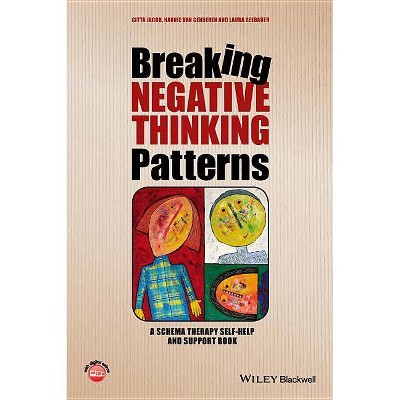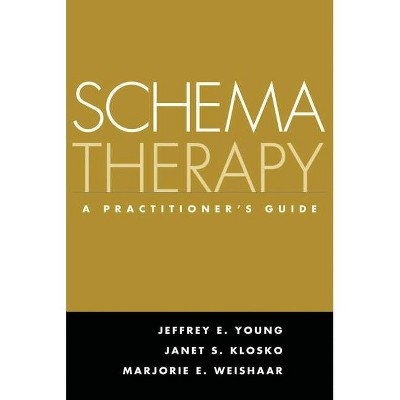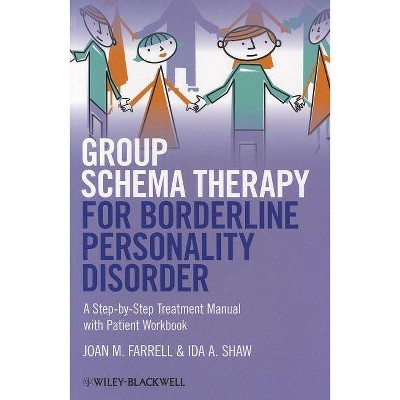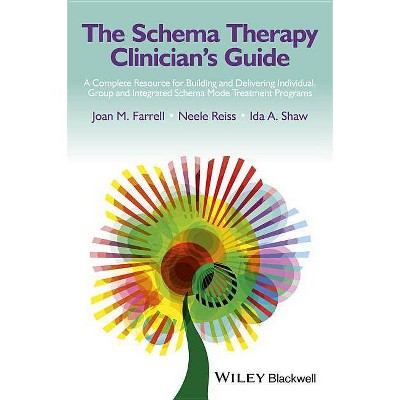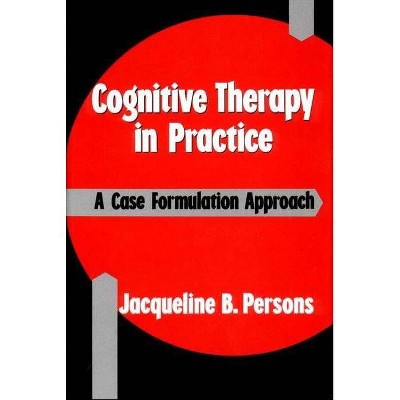Schema Therapy in Practice - by Arnoud Arntz & Gitta Jacob (Paperback)
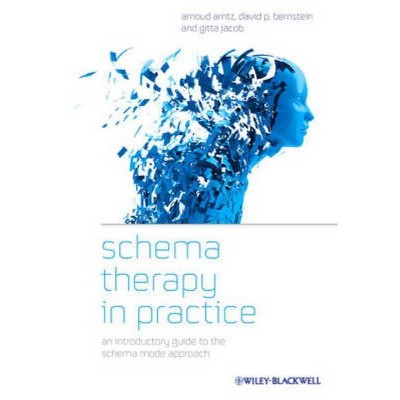
Similar Products
Products of same category from the store
AllProduct info
<p/><br></br><p><b> Book Synopsis </b></p></br></br><i>Schema Therapy in Practice</i> presents a comprehensive introduction to schema therapy for non-specialist practitioners wishing to incorporate it into their clinical practice.<br /> <br /> <ul> <li>Focuses on the current schema mode model, within which cases can be more easily conceptualized and emotional interventions more smoothly introduced</li> <li>Extends the practice of schema therapy beyond borderline personality disorder to other personality disorders and Axis I disorders such as anxiety, depression and OCD</li> <li>Presented by authors who are world-respected as leaders in the schema therapy field, and have pioneered the development of the schema mode approach</li> </ul><p/><br></br><p><b> From the Back Cover </b></p></br></br><p><i>Schema Therapy in Practice</i> presents a comprehensive introduction to schema therapy for nonspecialist practitioners wishing to incorporate it into their practice. The authors--world leaders in the field--reveal how the goals of schema therapy are to heal self-defeating schemas, to help patients stop using maladaptive coping styles, and, instead, to have patients' emotional needs met in everyday life. Within this broad framework, they show how schema modes are the moment-to-moment emotional states and coping responses that we all experience, how they are triggered by life situations that we are oversensitive to, and how they can lead us to overreact in damaging ways. While schema therapy was originally developed for clients with borderline personality disorder, this book takes a much broader approach and shows how it can be applied across different personality disorders, as well as to chronic axis-I disorders.</p> <p>Featuring clear, straightforward language and numerous case examples and treatment guidelines, <i>Schema Therapy in Practice</i> is an invaluable resource for clinicians and therapists at all levels who wish to acquire practical knowledge of the latest schema-therapy techniques.</p><p/><br></br><p><b> Review Quotes </b></p></br></br><br><p>The writing style is concise and grounded in the clinical setting, the case examples are clear and informative and the FAQs at the end of each chapter are well conceived. ...Arntz and Jacob manage to provide a captivating insight into what we might observe if looking in on a schema therapy session, and I think go some way toward convincing us that these are some genuinely novel ideas and methods that may deserve a place in our own consulting rooms. (<i>The Psychiatrist</i>, 1 June 2013)</p><br><p/><br></br><p><b> About the Author </b></p></br></br><p><b>Arnoud Arntz</b> is Professor of Clinical Psychology and Experimental Psychopathology at Maastricht University, the Netherlands. He is Scientific Director of the University's Research Center of Experimental Psychopathology. He studies psychological theories and therapies for anxiety and personality disorders, and is the principal investigator for a series of multicenter trials investigating the effectiveness of schema therapy for various personality disorders. He also practices CBT and schema therapy.</p> <p><b>Gitta Jacob</b> is a Clinical Psychologist, Cognitive and Schema Therapist in the Department of Clinical Psychology and Psychotherapy, University of Freiburg, Germany. She is a founding board member of the International Society for Schema Therapy, and a past Chair of the Working Group on Borderline Personality Disorders at the Department of Psychiatry and Psychotherapy, University Hospital Freiburg.</p>
Price History
Price Archive shows prices from various stores, lets you see history and find the cheapest. There is no actual sale on the website. For all support, inquiry and suggestion messagescommunication@pricearchive.us
